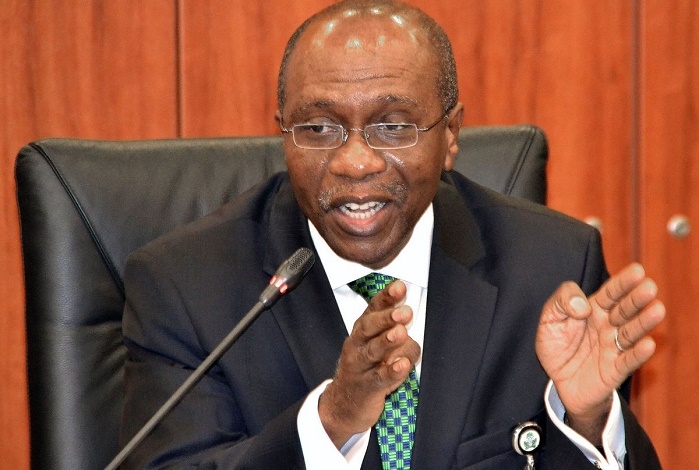 Godwin Emefiele, CBN Governor[/caption]
Godwin Emefiele, CBN Governor[/caption]
The Central Bank of Nigeria has retained the Monetary Policy Rate at 14% for a third consecutive time as they battle to grow an economy which is in its worst case of inflation in more than a decade.
Governor Godwin Emefiele told reporters after the Monetary Policy Committee (MPC) meeting held on Tuesday at the nation’s capital, Abuja.
As part of its resolve the committee, which had 10 of its 11 members present, also retained the liquidity ratio at 30% and the Cash Reserve Ratio (CRR) at 22.50%.
Advertisement
“The committee in consideration of the headwinds in the domestic economy and the uncertainties in the global environment, decided by a unanimous vote to retain the MPR at 14% alongside all their policy parameters,” Emefiele said.
“MPC decided to retain MPR at 14%, reatin CRR at 22.5%, retain the liquidity ratio at 30% and retain the asymmetric* corridor at +200 and -500 basis point around MPR.
“The committee noted that the average naira exchange rate remains stable at the interbank market of the foreign exchange market during the review period.
“The medium term outlook based on available data and forecast of key economic variables indicate a more resilient economy in 2017, growth is expected to turn positive as the fiscal space becomes more accommodating.
Advertisement
“In addition, the agricultural sector is expected to play a more significant role in driving growth, given the expansion of the anchor borrower programme as well as other developmental initiatives of the government.
“The committee reiterated the need to be more inward looking, and hasten efforts towards economic diversfication to support the domestic economy and improve life for the masses in Nigeria.
“The committee specifically noted the positive contribution of agriculture to GDP in the third quarter mostly attributable to the banks interventions in the sector
“The committee hopes that given the trust of the 2017 budget and accompanied sectoral policies, output growth should resume in the short to medium term.”
Nigeria’s economy slipped into recession in August 2016 after Africa’s biggest economy contracted for a second consecutive quarter.
Advertisement
The economy contracted 2.1 per cent in the three months to the end of June, worse than analysts expected, while inflation hit an 11-year high of 17.1 per cent.
The economy was hit by weaker global prices of crude oil, which accounts for more than 70% of its revenue.
Data released by the Nigerian Bureau of Statistics (NBS) in November 2016 showed that the economy further contracted 2.24% during the third quarter of last year.


